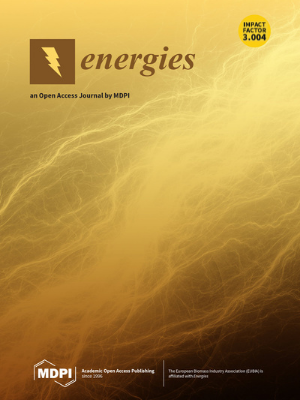Off-Gassing and Oxygen Depletion in Headspaces of Solid Biofuels Produced from Forest Residue Biomass
IF 3.2
4区 工程技术
Q3 ENERGY & FUELS
引用次数: 0
Abstract
As living standards improve worldwide, the demand for energy increases. However, climate changes and decreasing fossil fuel deposits have increased interest in renewable energy sources, including pellets produced from forest residues. This study aimed to compare changes in concentration of gases (CO, CO2, O2, volatile organic compounds—VOCs) in enclosed headspaces above pellets produced from deciduous (oak OA, birch BI) and coniferous (pine PI, spruce SP) dendromass and selected types of commercial pellets during their storage. The experiment measured the concentration of gas released from the pellets in storage daily for 14 days. The highest mean CO concentration was found for PI pellets (1194 ppm), and the lowest was for OA (63.3 ppm). Likewise, the highest CO2 concentration was noted for PI pellets (4650 ppm), and the lowest was for BI (1279 ppm). The largest VOC amount was released in the headspace above PI (88.8 ppm), and the smallest was above BI (4.6 ppm). The oxygen concentration was the lowest as measured for PI (minimum 16.1% v/v) and for SP (19.3% v/v). The threshold limit value (8 h) for CO was exceeded for all the pellets under analysis and, in the case of CO2, only for PI after day 10 of incubation. The study findings are extremely important from a scientific (but mainly from a practical) perspective because of the safety of storing and transporting wood pellets. The knowledge of autooxidation processes in those biofuels can help organize their logistics and storage and result in proper warehouse ventilation and monitoring of noxious gases.利用林渣生物质生产的固体生物燃料顶层空间的废气和氧气损耗
随着全球生活水平的提高,对能源的需求也随之增加。然而,由于气候变化和化石燃料储量的减少,人们对可再生能源(包括用森林剩余物生产的颗粒燃料)的兴趣日益浓厚。这项研究的目的是比较落叶林(橡树 OA、桦树 BI)和针叶林(松树 PI、云杉 SP)树枝屑生产的颗粒燃料和选定类型的商用颗粒燃料在储存期间,其上方封闭顶层空间中气体(CO、CO2、O2、挥发性有机化合物-VOC)浓度的变化。实验测量了颗粒在储存 14 天内每天释放的气体浓度。结果发现,PI 木粒的二氧化碳平均浓度最高(1194 ppm),OA 木粒最低(63.3 ppm)。同样,PI 颗粒的二氧化碳浓度最高(4650 ppm),BI 颗粒最低(1279 ppm)。挥发性有机化合物在 PI 上面的顶空释放量最大(88.8 ppm),在 BI 上面的释放量最小(4.6 ppm)。氧气浓度最低的是 PI(最低 16.1% v/v)和 SP(19.3% v/v)。所有被分析的颗粒都超过了一氧化碳的阈限值(8 小时),只有 PI 在培养第 10 天后超过了二氧化碳的阈限值。从科学角度(但主要是从实用角度)来看,这项研究结果非常重要,因为这关系到木质颗粒的储存和运输安全。了解这些生物燃料的自氧化过程有助于组织它们的物流和储存,从而实现适当的仓库通风和有害气体监测。
本文章由计算机程序翻译,如有差异,请以英文原文为准。
求助全文
约1分钟内获得全文
求助全文
来源期刊

Energies
ENERGY & FUELS-
CiteScore
6.20
自引率
21.90%
发文量
8045
审稿时长
1.9 months
期刊介绍:
Energies (ISSN 1996-1073) is an open access journal of related scientific research, technology development and policy and management studies. It publishes reviews, regular research papers, and communications. Our aim is to encourage scientists to publish their experimental and theoretical results in as much detail as possible. There is no restriction on the length of the papers. The full experimental details must be provided so that the results can be reproduced.
 求助内容:
求助内容: 应助结果提醒方式:
应助结果提醒方式:


